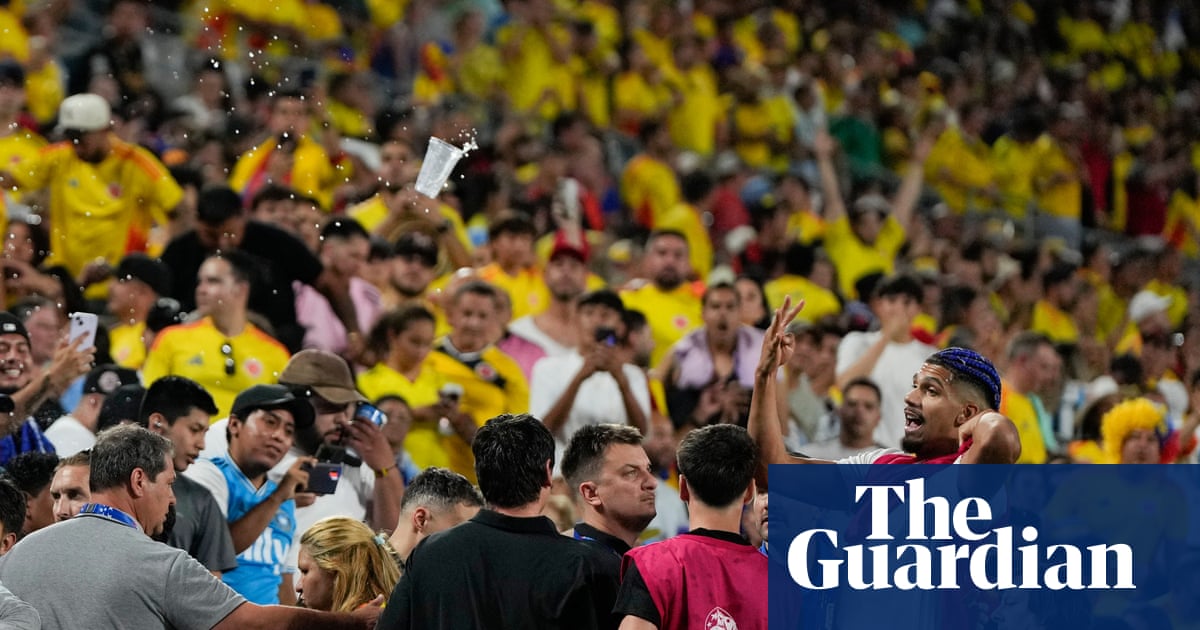Sport’s highest court has rejected an appeal by five Uruguay players against their bans for clashing with fans after aCopa Américasemi-final in North Carolina last year. The Court of Arbitration for Sport (Cas) rejected their claim that they acted in self defense to protect their families.
FiveUruguayplayers, including Liverpool forward Darwin Núñez, Barcelona defender Ronald Araújo and Atletico Madrid defender José María Giménez, were banned for between three and five games by Conmebol after the brawl.
The players had clashed with fansin the stands at Bank of America Stadium in Charlotte after a 1-0 loss to Colombia last July. Tottenham midfielder Rodrigo Bentancur and Napoli defender Mathías Olivera also were involved and later banned.
Cas said on Tuesday its judges dismissed appeals by the players and the Uruguayan soccer federation.
“The panel found that in this case, the principle of self-defense does not apply and that the conduct of the players constituted a voluntary, violent and unjustified action,” the court said in a statement.
Núñez and the other players will now be suspended when Uruguay resumeWorld Cupqualifying games at Paraguay on 5 June and host Venezuela five days later.
Coached by Marcelo Bielsa, the team are on track to qualify for the 2026 tournament and return to the US, which will co-host the tournament with Canada and Mexico.
Sign up toSoccer with Jonathan Wilson
Jonathan Wilson brings expert analysis on the biggest stories from European soccer
after newsletter promotion
Uruguay are third in the standings in the 10-team South American qualifying group with four rounds left, six points ahead of seventh-placed Venezuela. The top six advance directly to the World Cup and the seventh-place team enter an intercontinental playoff in March next year.
